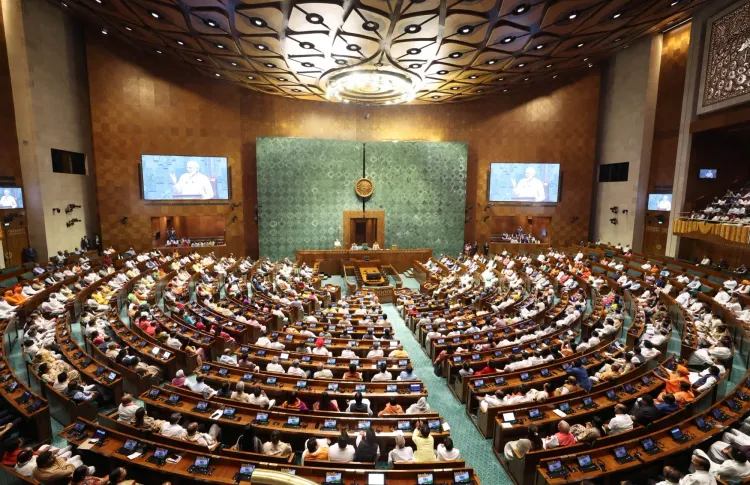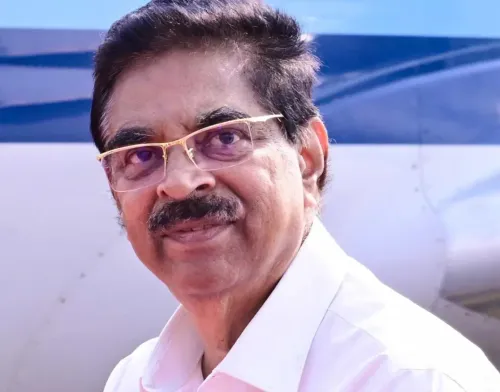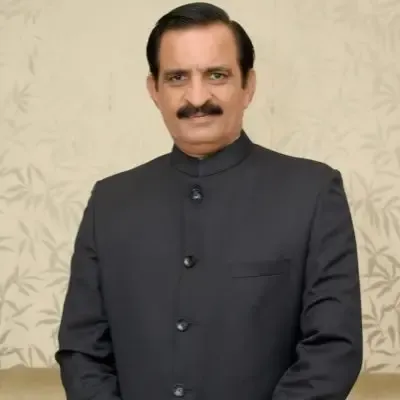Why Did India Launch Operation Sindoor?

Synopsis
Key Takeaways
- Operation Sindoor was a direct response to cross-border terrorism.
- It aimed to dismantle terrorist infrastructures.
- India inflicted substantial damage on Pakistani military assets.
- International support for India's actions has increased.
- India's diplomatic efforts are crucial in combating terrorism.
New Delhi, July 24 (NationPress) The Indian government on Thursday emphasized that ‘Operation Sindoor’ was initiated as a direct and calculated reaction to a cross-border terror attack orchestrated by terrorists supported by Pakistan.
In a formal statement presented to the Rajya Sabha, Minister of State for External Affairs Kirti Vardhan Singh characterized the operation as “focused, measured, and non-escalatory”, asserting its objective was to dismantle terrorist infrastructures and neutralize potential threats aimed at India from across the border.
The minister addressed inquiries from MP Ramji Lal Suman, who sought clarifications on whether global pressure influenced the ceasefire during Operation Sindoor and if the abrupt cessation impacted the morale of Indian forces.
In his response, Singh stated that Operation Sindoor was executed in retaliation to what he termed a “barbaric cross-border terror attack by Pakistan-sponsored terrorists.”
He elaborated, “The operation was concentrated on dismantling terrorist infrastructure and neutralizing any terrorists potentially dispatched to India.”
According to Singh, Pakistan exacerbated tensions by attempting to target Indian civilian areas and military positions, provocations that were met with a strong and decisive response from the Indian armed forces, inflicting substantial damage on Pakistani military assets.
The minister confirmed that on May 10, 2025, Pakistan’s Director General of Military Operations reached out to his Indian counterpart requesting a cessation of military actions, which was accepted later that day, leading to the end of hostilities.
During Operation Sindoor, nine terrorist camps located in Pakistan and Pakistan-occupied Kashmir (PoK) were obliterated in precision airstrikes conducted on May 7, executed to avenge the April 22 terror attack in Pahalgam.
In response to a related inquiry, Singh elaborated on India’s diplomatic endeavors to expose Pakistan’s involvement in cross-border terrorism, emphasizing India’s continuous engagement with international partners to spotlight the threats posed by terrorist groups based in Pakistan.
“Thanks to India’s persistent efforts, the global community now possesses a better understanding of our concerns regarding cross-border terrorism,” Singh remarked.
He highlighted India’s achievements in getting several individuals and organizations based in Pakistan listed under the UN Security Council’s 1267 Sanctions regime, alongside Pakistan’s grey listing by the Financial Action Task Force.
Singh also recalled the statement from the UN Security Council following the Pahalgam attack, which “strongly condemned” the act and underscored the necessity to hold accountable those responsible, including organizers, sponsors, and financiers.
Moreover, Singh acknowledged that numerous world leaders have publicly endorsed India’s anti-terror initiatives. Most notably, the United States recently designated The Resistance Front (TRF), a proxy of the banned Lashkar-e-Taiba, as a Foreign Terrorist Organisation and a Specially Designated Global Terrorist.
Lastly, Singh addressed queries regarding Pakistan’s election as Vice-Chair of the UN Counter Terrorism Committee for 2025, noting that such roles follow the routine rotational protocol of the UN Security Council. He added that India had previously held the Chair of the same committee in 2011-12 and again in 2022.










